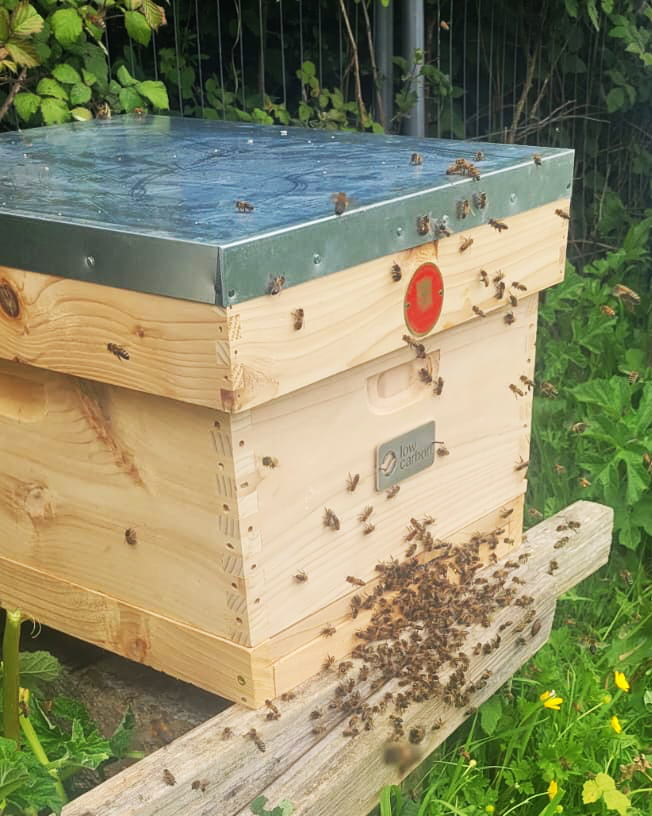
The importance of bees to our environment and natural ecosystems cannot be overstated. Alongside other insect pollinators, bees pollinate 87 per cent of all plant species, and about 75 per cent of crop species. The latest estimate by the Department for Environment, Food and Rural Affairs (DEFRA) estimates that bees directly contribute to the equivalent of more than £500 million a year to the UK economy.
But as climate change takes hold and global temperatures rise, the bee population is in decline. Not only does this threaten biodiversity and our environment – natural vegetation is known to offset carbon emissions – but bees are also crucial to mitigating the impacts of climate change.
The UK is already ranked as one of the least biodiverse countries globally. This is why the dramatic and severe decline of the bee population is particularly alarming.
On World Bee Day (20 May), Low Carbon revealed details of the world-first study our partners at Lancaster University are undertaking. Led by Dr Philip Donkersley, the research is the first ever scientifically rigorous attempt at designing, manufacturing and deploying a bumblebee nestbox designed to lure queen bumblebees and encourage them to nest.
The University’s researchers have built 50 prototype boxes, which are stationed at Low Carbon’s Rudbaxton Solar Park in Haverfordwest. They were deployed in the spring, when queen bumblebees emerge from their winter hibernation and begin the hunt for a new nest site. Half of the boxes were dosed with a safe, chemical-based lure, in an additional attempt to influence the queen’s choice of habitat.
Discussing its reasoning for the study, the research team highlighted the absence of a critical understanding of bee behaviour inside the nest. This pioneering research will attempt to understand what conditions queen bees need to begin a new nest each year. It is hoped that the findings could bolster the scientific community’s attempts to restore declining pollinator populations.
Solar parks are already a proven solution to the energy crisis in the UK and abroad, but their role in improving biodiversity is only now being realised. Previous research by Lancaster University, also supported by Low Carbon, has proven that solar parks are ideal habitats for bees and other wildlife. The findings from PhD researcher Hollie Blades conclude that solar parks could be used as a conservation tool to support and boost pollinator populations. This is why Low Carbon hosts beehives at all our operational solar parks in the UK. To date, we have 25 hives across five locations, which are now home to an estimated two million bees.
The new study by Dr Donkersley will attempt to further harness the potential of solar parks by attracting more bees to the sites. His team will return to the Haverfordwest site in July and again in September, to see which of the nestboxes were most successful in attracting the queen bees. We look forward to seeing the results, and working with our partners to boost biodiversity in communities local to our project sites.
- SEO Powered Content & PR Distribution. Get Amplified Today.
- PlatoAiStream. Web3 Data Intelligence. Knowledge Amplified. Access Here.
- Minting the Future w Adryenn Ashley. Access Here.
- Buy and Sell Shares in PRE-IPO Companies with PREIPO®. Access Here.
- Source: https://www.lowcarbon.com/blog/low-carbon-and-lancaster-university-launch-first-of-its-kind-study-to-influence-behaviour-of-queen-bees-at-solar-sites-boosting-biodiversity/



